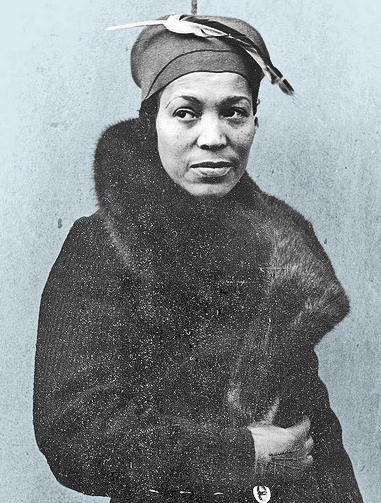
Zora Neale Hurston writes to fellow novelist and playwright Langston Hughes shortly after her graduation from Barnard College, while conducting anthropological field studies on African-American culture and folklore. Having joined Hughes on a tour of the American South over the summer of 1927, Hurston was disappointed when she learned that he would not be able to resume their studies in 1928. Knowing that Hughes was “with [her] in spirit,” however, Hurston would recite his poetry to her subjects, reporting how well received his verses were amongst the rural populace. Below, Hurston recounts watching a betting game of cards, during which the dealer mocked his losing opponent with lines from Hughes’ poem “Hard Luck,” from the volume of poetry Fine Clothes to the Jew, published in 1927.
Magazine, Ala
July 10, 1928
Dear Langston,
I have been through one of those terrible periods when I can’t make myself write. But you understand, since you have ‘em yourself.
In every town I hold 1 or 2 storytelling contests, and at each I begin by telling them who you are and all, then I read poems from “Fine Clothes.” Boy! They eat it up. Two or three of them are too subtle and they don’t get it. “Mulatto,” for instance and “Sport,” but the others they just eat up. You are being quoted in R.R. camps, phosphate mines, Turpentine stills, etc. I went into a house Saturday night (last) and the men were skinning—you remember my telling you about that game—and when the dealer saw his opponent was on the turn (and losing consequently) He chanted
“When hard luck overtakes you
Nothin for you to do
Grab up yo fine clothes
An’ sell em to-ooo de Jew Hah!!”
(slaps the card down on the table)
The other fellow was visibly cast down when the dealer picked up his money.
Dealer gloating continued: “If you wuz a mule
I’d git you a waggin to haul—
But youse so low down-hown
you aind even got uh stall.”
So you see they are making it so much a part of themselves they go to improvising on it.
For some reason they call it “De Party Book.” They come specially to be read to and I know you could sell them if you only had a supply. I think I’d like a dozen as an experiment. They adore “Saturday Night” and “Evil Woman,” “Bad Man,” “Gypsy Man.”
They sing the poems right off, and July 1, two men came over with guitars and sang the whole book. Everybody joined in. It was the strangest and most thrilling thing. They played it well too. You’d be surprised. One man was giving the words out—lining them out as the preacher does a hymn and the others would take it up and sing. It was glorious!
Work going on well. I am getting much more material in a given space and time than before because I am learning better technique. Getting more love letters too. Am keeping close tab on expressions of double meaning too, also compiling lists of double words. They—to give emphasis—use the noun and put the function of the noun before it as an adjective. Example, sitting-chair, suck-bottle, cook-pot, hair-comb.
Without flattery, Langston, you are the brains of this argosy. All the ideas have come out of your head.
I have about enough for a good volume of stories but I shall miss nothing. I shall go to New Orleans from here. Oh! Almost forgot. Found another one of the Original Africans, older than Cudjoe about 200 miles up state on the Tombighee river. She is most delightful, but no one will ever know about her but us. She is better talker than Cudjoe.
Had a letter from Alain. Wrote him at his Paris Address.
Be here for two weeks more at least.
Lovingly,
Zora
I wanted to let your publishers know what a hit you are with the people you write about, but Godmother doesn’t want me to say anything at present. But I shall do it as soon as this is over.
From Women’s Letters, America from the Revolutionary War to the Present. Edited by Lisa Grunwald & Stephen J. Adler. New York: Dial Press, 2005.
FURTHER READING
Watch Zora Neale Hurston’s fieldwork footage from 1928.
Read about Zora Neale Hurston and Langston Hughes’ “Godmother,” Charlotte Osgood Mason; patron of writers and artists of the Harlem Renaissance.
Read a PDF of Fire!!, the single-issue literary magazine published in 1926 by a group of Harlem Renaissance writers — including Langston Hughes and Zora Neale Hurston — self-dubbed the “Niggerati.”


